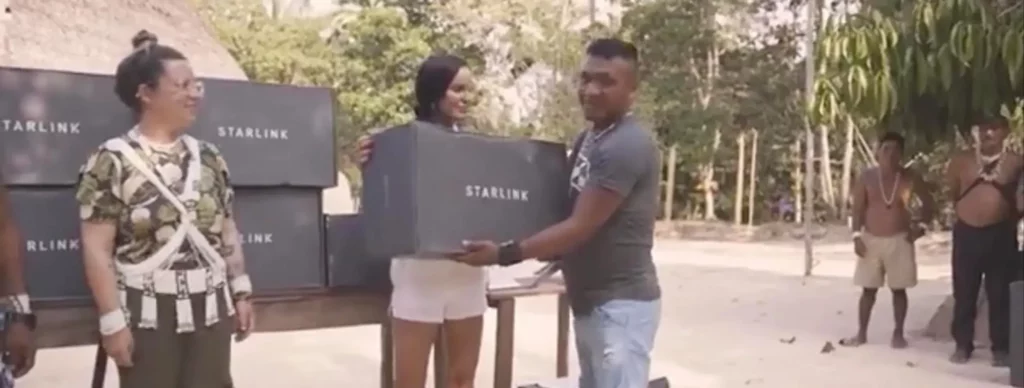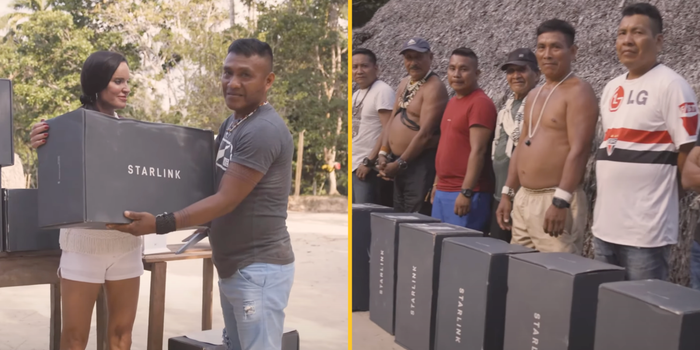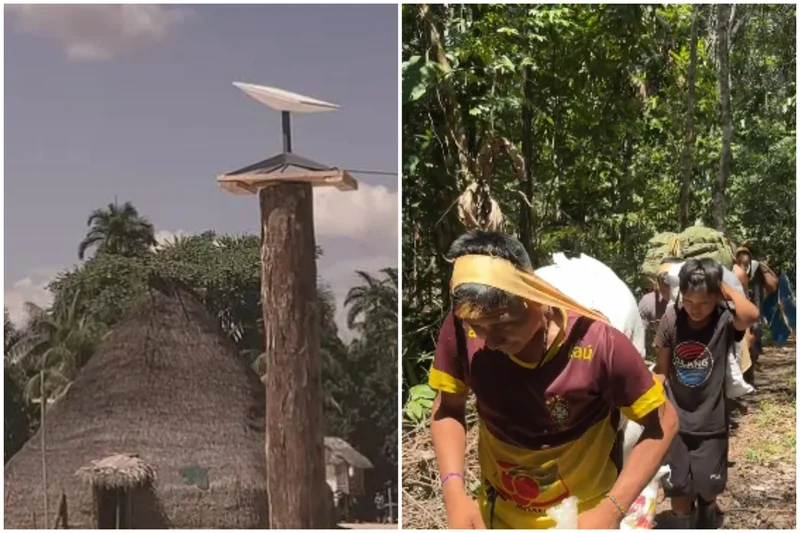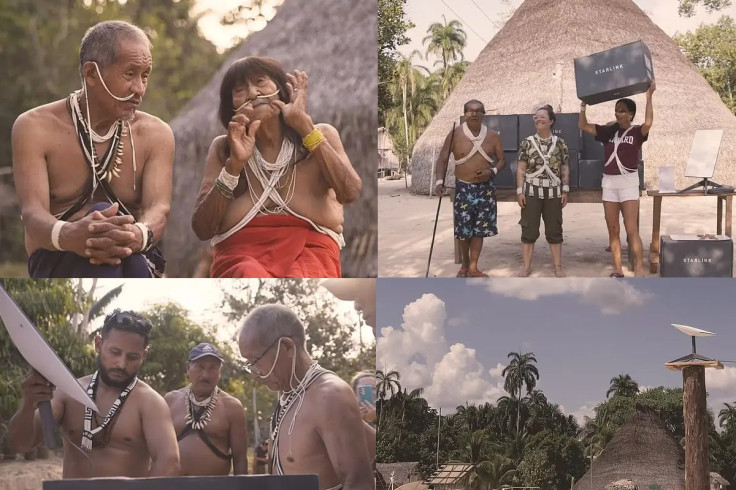While there are undoubtedly benefits to having internet connectivity, a secluded tribe in the Amazon is suddenly becoming aware of some of the drawbacks.
Over 476 million indigenous people are thought to be living in 90 different countries worldwide, according to the United Nations.
While many people lead lonely lives cut off from the outside world, one tribe has become more integrated into society as a result of having internet connection.
READ MORE: SpaceX’s Starlink Internet Is About To Get Faster And More Reliable, Thanks To The FCC
The Marubo people, whose huts are dispersed hundreds of kilometers along the Ituí River deep in the Amazon jungle, were given access to Elon Musk’s internet provider, Starlink, in September of last year.

American businessman Allyson Reneau allegedly gave the indigenous group the antennas they needed to use the services.
Additionally, the tribe has benefited greatly from having internet connectivity, especially in times of necessity.
READ MORE: Starlink Selects Peplink As Its First ‘Authorized Technology Provider’
For instance, people can now promptly contact for assistance in the event of a venomous snake bite.
Starlink has ‘already saved lives’ in the few months the Marubo tribe has been using, according to one Marubo leader, Enoque Marubo, who spoke with The New York Times.

In addition, Starlink has made it possible for people to contact distant family members and assisted tribe leaders communicate with other towns.
However, there are drawbacks to internet use for Marubo people. A number of tribal chiefs have voiced concerns about their youth having access to pornographic material.
READ MORE: Beginning In 2024, Starlink Will Provide Texting From Space
In contrast to the tribe’s more restrained and traditional customs, young people have started exchanging explicit movies in group chats, according to Alfredo Marubo, the head of a Marubo organization of communities, who spoke with the news source.
Alfredo responded, “We’re worried young people are going to want to try it.”

It seems that the tribe has already witnessed an increase in young men’s “aggressive sexual behavior.”
He also voiced concerns about the fact that people are using their phones more and talking to their families less.
“Everyone is so connected that sometimes they don’t even talk to their own family,” Alfredo said.
Although one tribe has undoubtedly become more split as a result of internet access, Brazilian activist Flora Dutra has stated her desire to connect more isolated indigenous peoples to the internet.
In fact, Flora eventually wants to bring the Yanomami, the biggest isolated tribe in Brazil, online.
Radiant TV, offering to elevate your entertainment game! Movies, TV series, exclusive interviews, music, and more—download now on various devices, including iPhones, Androids, smart TVs, Apple TV, Fire Stick, and more.


